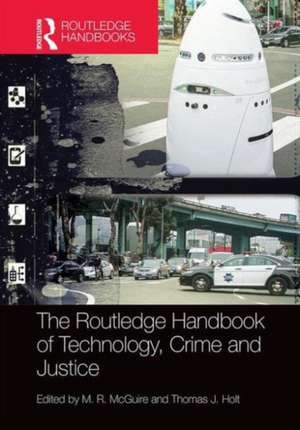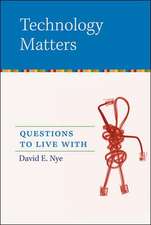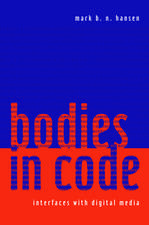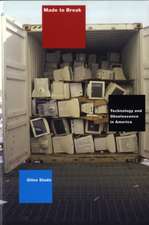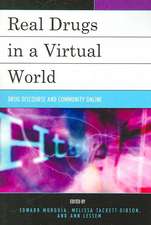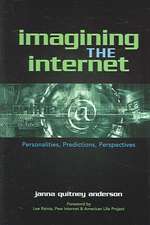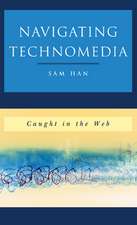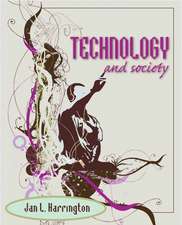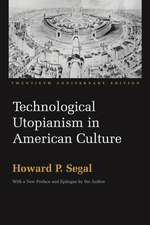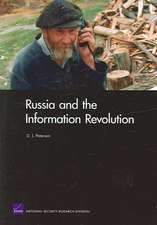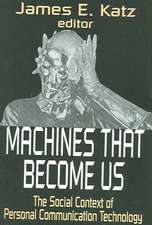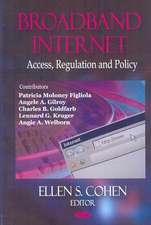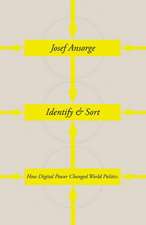The Routledge Handbook of Technology, Crime and Justice: Routledge International Handbooks
Editat de M. R. McGuire, Thomas Holten Limba Engleză Hardback – 7 dec 2016
This book offers the first comprehensive and holistic overview of global research on technology, crime and justice. It is divided into five parts, each corresponding with the key stages of the offending and justice process:
- Part I addresses the current conceptual understanding of technology within academia and the criminal justice system;
- Part II gives a comprehensive overview of the current relations between technology and criminal behaviour;
- Part III explores the current technologies within crime control and the ways in which technology underpins contemporary formal and informal social control;
- Part IV sets out some of the fundamental impacts technology is now having upon the judicial process;
- Part V reveals the emerging technologies for crime, control and justice and considers the extent to which new technology can be effectively regulated.
| Toate formatele și edițiile | Preț | Express |
|---|---|---|
| Paperback (1) | 445.12 lei 43-57 zile | |
| Taylor & Francis – 30 iun 2020 | 445.12 lei 43-57 zile | |
| Hardback (1) | 1820.84 lei 43-57 zile | |
| Taylor & Francis – 7 dec 2016 | 1820.84 lei 43-57 zile |
Din seria Routledge International Handbooks
-
 Preț: 371.78 lei
Preț: 371.78 lei -
 Preț: 375.50 lei
Preț: 375.50 lei -
 Preț: 362.19 lei
Preț: 362.19 lei -
 Preț: 352.08 lei
Preț: 352.08 lei - 9%
 Preț: 1487.70 lei
Preț: 1487.70 lei - 5%
 Preț: 317.31 lei
Preț: 317.31 lei -
 Preț: 372.05 lei
Preț: 372.05 lei -
 Preț: 361.19 lei
Preț: 361.19 lei -
 Preț: 390.13 lei
Preț: 390.13 lei -
 Preț: 311.91 lei
Preț: 311.91 lei - 9%
 Preț: 1488.67 lei
Preț: 1488.67 lei -
 Preț: 390.22 lei
Preț: 390.22 lei -
 Preț: 347.74 lei
Preț: 347.74 lei -
 Preț: 347.74 lei
Preț: 347.74 lei - 9%
 Preț: 1490.11 lei
Preț: 1490.11 lei -
 Preț: 356.22 lei
Preț: 356.22 lei -
 Preț: 348.27 lei
Preț: 348.27 lei - 5%
 Preț: 328.11 lei
Preț: 328.11 lei -
 Preț: 394.24 lei
Preț: 394.24 lei - 8%
 Preț: 392.89 lei
Preț: 392.89 lei - 8%
 Preț: 422.42 lei
Preț: 422.42 lei -
 Preț: 357.22 lei
Preț: 357.22 lei - 8%
 Preț: 421.97 lei
Preț: 421.97 lei - 5%
 Preț: 452.16 lei
Preț: 452.16 lei -
 Preț: 341.55 lei
Preț: 341.55 lei - 9%
 Preț: 1651.61 lei
Preț: 1651.61 lei - 9%
 Preț: 1665.70 lei
Preț: 1665.70 lei -
 Preț: 381.91 lei
Preț: 381.91 lei -
 Preț: 350.20 lei
Preț: 350.20 lei -
 Preț: 347.74 lei
Preț: 347.74 lei - 20%
 Preț: 1401.00 lei
Preț: 1401.00 lei -
 Preț: 342.76 lei
Preț: 342.76 lei -
 Preț: 345.63 lei
Preț: 345.63 lei -
 Preț: 345.16 lei
Preț: 345.16 lei -
 Preț: 353.88 lei
Preț: 353.88 lei -
 Preț: 1057.72 lei
Preț: 1057.72 lei -
 Preț: 348.05 lei
Preț: 348.05 lei - 5%
 Preț: 337.33 lei
Preț: 337.33 lei -
 Preț: 365.90 lei
Preț: 365.90 lei - 9%
 Preț: 1528.86 lei
Preț: 1528.86 lei -
 Preț: 346.77 lei
Preț: 346.77 lei -
 Preț: 392.48 lei
Preț: 392.48 lei - 9%
 Preț: 1454.51 lei
Preț: 1454.51 lei - 5%
 Preț: 326.85 lei
Preț: 326.85 lei -
 Preț: 346.11 lei
Preț: 346.11 lei -
 Preț: 361.74 lei
Preț: 361.74 lei - 9%
 Preț: 1349.74 lei
Preț: 1349.74 lei - 19%
 Preț: 422.81 lei
Preț: 422.81 lei - 8%
 Preț: 385.56 lei
Preț: 385.56 lei
Preț: 1820.84 lei
Preț vechi: 2220.53 lei
-18% Nou
Puncte Express: 2731
Preț estimativ în valută:
348.41€ • 364.75$ • 288.29£
348.41€ • 364.75$ • 288.29£
Carte tipărită la comandă
Livrare economică 07-21 aprilie
Preluare comenzi: 021 569.72.76
Specificații
ISBN-13: 9781138820135
ISBN-10: 113882013X
Pagini: 722
Ilustrații: 38
Dimensiuni: 174 x 246 x 44 mm
Greutate: 1.34 kg
Ediția:1
Editura: Taylor & Francis
Colecția Routledge
Seria Routledge International Handbooks
Locul publicării:Oxford, United Kingdom
ISBN-10: 113882013X
Pagini: 722
Ilustrații: 38
Dimensiuni: 174 x 246 x 44 mm
Greutate: 1.34 kg
Ediția:1
Editura: Taylor & Francis
Colecția Routledge
Seria Routledge International Handbooks
Locul publicării:Oxford, United Kingdom
Public țintă
Postgraduate and UndergraduateCuprins
Introduction M. R. McGuire
Part I Technology, Crime and Justice: Theory and History
1. Theorizing Technology and its Role in Crime and Law Enforcement Phillip Brey
2. Technology Crime and Technology Control: Contexts and History M. R. McGuire
Part II Technology, Crime and Harm
Section 1 Information Communication Technologies (ICTs) and Digital Crime
3. The Evolving Landscape of Technology-Dependent Crime Steven Furnell
4. Technology and Fraud: The ‘Fraudogenic’ Consequences of the Internet Revolution Mark Button and Cassandra Cross
5. ICTs and Child Sexual Offending: Exploitation Through Indecent Images Jo Bryce
6. ICTs and Sexuality Andrew S. Denney and Richard Tewkesbury
7. ICTs and Interpersonal Violence Thomas J. Holt
8. Online Pharmacies and Technology Crime Chris Jay Hoofnagle, Ibrahim Altaweel, Jaime Cabrera, Hen Su Choi, Katie Ho, and Nathaniel Good
9. The Theft of Ideas as a Cybercrime: Downloading and Changes in the Business Model of Creative Arts David S. Wall
10. ICTS, Privacy and the (Criminal) Misuse of Data Andrew Puddephatt
Section 2 Chemical and Biological Technologies and Crime
11. Crime and Chemical Production Kimberley Barrett
12. Pharmatechnologies and the Ills of Medical Progress Paddy Rawlinson
13. Bioengineering and Biocrime Victoria Sutton
Keynote Discussion
14. Technology, Environmental Harm and Green Criminology Rob White
Section 3 Wider Varieties of Technology Crime
15. Guns, Technology and Crime Peter Squires
16. Crime, Transport and Technology Andrew Newton
17. Food Fraud and Food Fraud Detection Technologies Roy Fenoff and John Spink
18. Consumer Technologies, Crime and Environment Implications Avi Brisman and Nigel South
Keynote Discussion: Technology, Crime and Harm
19. Evaluating Technologies as Criminal Tools Max Kilger
Part III Technology and Control
20. Crime, Situational Prevention and Technology: The Nature of Opportunity and How it Evolves Paul Ekblom
21. Technology, Innovation and Twenty-First-Century Policing Don Hummer and Jim Byrne
22. Contemporary Landscapes of Forensic Innovation Christopher Lawless
23. Technology and Digital Forensics Marc Rodgers
24. DNA and Identification Carole McCartney
25. Visual Surveillance Technologies Richard Jones
26. Big Data, Predictive Machines and Security: The Minority Report Adam Edwards
27. Cognitive Neuroscience, Criminal Justice and Control Lisa Claydon
Keynote Discussion: Technology and Control
28. The Uncertainty Principle: Qualification, Contingency, and Fluidity in Technology and Social Control Gary. T. Marx and Keith Guzik
Part IV Technology and the Process of Justice
29. Establishing Culpability: Forensic Technologies and Justice Simon A. Cole
30. Technology-augmented and Virtual Courts and Courtrooms Frederick I. Lederer
31. Computer-Assisted Sentencing Martin Wasik
32. The Technology of Confinement and Quasi-Therapeutic Control: Managing Souls with In-cell Television Victoria Knight
33. Punitivity and Technology Simon Hallsworth and Maria Kaspersson
34. Public and Expert Voices in the Legal Regulation of Technology Patrick Bishop and Stuart MacDonald
Keynote discussion: Technology and the Process of Justice
35. The Force of Law and the Force of Technology Mireille Hildebrandt
Part V Emerging Technologies of Crime and Justice
36. Nanocrime 2.0 Susan W. Brenner
37. AI and Bad Robots: The Criminology of Automation Ugo Pagallo
38. Technology, Body and Human Enhancement: Prospects and Justice Jérôme Goffette
Keynote discussion: Technology and Justice
39. Technology and Justice Albert Borgmann
Part I Technology, Crime and Justice: Theory and History
1. Theorizing Technology and its Role in Crime and Law Enforcement Phillip Brey
2. Technology Crime and Technology Control: Contexts and History M. R. McGuire
Part II Technology, Crime and Harm
Section 1 Information Communication Technologies (ICTs) and Digital Crime
3. The Evolving Landscape of Technology-Dependent Crime Steven Furnell
4. Technology and Fraud: The ‘Fraudogenic’ Consequences of the Internet Revolution Mark Button and Cassandra Cross
5. ICTs and Child Sexual Offending: Exploitation Through Indecent Images Jo Bryce
6. ICTs and Sexuality Andrew S. Denney and Richard Tewkesbury
7. ICTs and Interpersonal Violence Thomas J. Holt
8. Online Pharmacies and Technology Crime Chris Jay Hoofnagle, Ibrahim Altaweel, Jaime Cabrera, Hen Su Choi, Katie Ho, and Nathaniel Good
9. The Theft of Ideas as a Cybercrime: Downloading and Changes in the Business Model of Creative Arts David S. Wall
10. ICTS, Privacy and the (Criminal) Misuse of Data Andrew Puddephatt
Section 2 Chemical and Biological Technologies and Crime
11. Crime and Chemical Production Kimberley Barrett
12. Pharmatechnologies and the Ills of Medical Progress Paddy Rawlinson
13. Bioengineering and Biocrime Victoria Sutton
Keynote Discussion
14. Technology, Environmental Harm and Green Criminology Rob White
Section 3 Wider Varieties of Technology Crime
15. Guns, Technology and Crime Peter Squires
16. Crime, Transport and Technology Andrew Newton
17. Food Fraud and Food Fraud Detection Technologies Roy Fenoff and John Spink
18. Consumer Technologies, Crime and Environment Implications Avi Brisman and Nigel South
Keynote Discussion: Technology, Crime and Harm
19. Evaluating Technologies as Criminal Tools Max Kilger
Part III Technology and Control
20. Crime, Situational Prevention and Technology: The Nature of Opportunity and How it Evolves Paul Ekblom
21. Technology, Innovation and Twenty-First-Century Policing Don Hummer and Jim Byrne
22. Contemporary Landscapes of Forensic Innovation Christopher Lawless
23. Technology and Digital Forensics Marc Rodgers
24. DNA and Identification Carole McCartney
25. Visual Surveillance Technologies Richard Jones
26. Big Data, Predictive Machines and Security: The Minority Report Adam Edwards
27. Cognitive Neuroscience, Criminal Justice and Control Lisa Claydon
Keynote Discussion: Technology and Control
28. The Uncertainty Principle: Qualification, Contingency, and Fluidity in Technology and Social Control Gary. T. Marx and Keith Guzik
Part IV Technology and the Process of Justice
29. Establishing Culpability: Forensic Technologies and Justice Simon A. Cole
30. Technology-augmented and Virtual Courts and Courtrooms Frederick I. Lederer
31. Computer-Assisted Sentencing Martin Wasik
32. The Technology of Confinement and Quasi-Therapeutic Control: Managing Souls with In-cell Television Victoria Knight
33. Punitivity and Technology Simon Hallsworth and Maria Kaspersson
34. Public and Expert Voices in the Legal Regulation of Technology Patrick Bishop and Stuart MacDonald
Keynote discussion: Technology and the Process of Justice
35. The Force of Law and the Force of Technology Mireille Hildebrandt
Part V Emerging Technologies of Crime and Justice
36. Nanocrime 2.0 Susan W. Brenner
37. AI and Bad Robots: The Criminology of Automation Ugo Pagallo
38. Technology, Body and Human Enhancement: Prospects and Justice Jérôme Goffette
Keynote discussion: Technology and Justice
39. Technology and Justice Albert Borgmann
Notă biografică
M. R. McGuire is Senior Lecturer in Criminology at the University of Surrey, UK.
Thomas J. Holt is Professor of Criminal Justice at Michigan State University, USA.
Thomas J. Holt is Professor of Criminal Justice at Michigan State University, USA.
Recenzii
‘This book brings together a team of world-leading scholars to assess the ever increasing impact of technological development upon crime and justice. Extending their gaze well beyond the digital realm to include mechanical, chemical and biological technologies, these exemplary essays offer invaluable insights into just how significantly technologies are reshaping the contours of criminal activity and its control. This is a hugely important resource for anyone seeking to understand the contemporary contours of global crime.’
Majid Yar, Professor of Criminology, Lancaster University, UK
'This is truly an exceptional book. Technology plays a vital role in shaping how we understand and respond to the problem of crime, and this new collection by McGuire and Holt provides a comprehensive and fascinating account of area often overlooked by criminal justice system scholarship. Highly recommended.'
Benjamin Goold, Professor at the Peter A. Allard School of Law, University of British Columbia, Canada
'Michael McGuire and Thomas Holt have put together an impressive collection of essays on how technological change has transformed crime, crime control and justice. Rich, diverse, and informative, in 39 chapters the Handbook covers a huge range of topics, with contributions from both emerging and distinguished scholars from different disciplines. The volume reflects a genuine desire to cover the field comprehensively, focusing not only on ICT, but also a variety of other technologies such as chemical and biological, DNA and forensics, as well as visual, weapon, transport and nano science. It does so in a way that is both delightfully accessible and theoretically informed.'
Janet Chan, Professor at UNSW Law, Key Researcher at the Data to Decisions Cooperative Research Centre (D2D CRC), and Associate Director of the Australian Centre for Cyber Security, UNSW, Australia
Majid Yar, Professor of Criminology, Lancaster University, UK
'This is truly an exceptional book. Technology plays a vital role in shaping how we understand and respond to the problem of crime, and this new collection by McGuire and Holt provides a comprehensive and fascinating account of area often overlooked by criminal justice system scholarship. Highly recommended.'
Benjamin Goold, Professor at the Peter A. Allard School of Law, University of British Columbia, Canada
'Michael McGuire and Thomas Holt have put together an impressive collection of essays on how technological change has transformed crime, crime control and justice. Rich, diverse, and informative, in 39 chapters the Handbook covers a huge range of topics, with contributions from both emerging and distinguished scholars from different disciplines. The volume reflects a genuine desire to cover the field comprehensively, focusing not only on ICT, but also a variety of other technologies such as chemical and biological, DNA and forensics, as well as visual, weapon, transport and nano science. It does so in a way that is both delightfully accessible and theoretically informed.'
Janet Chan, Professor at UNSW Law, Key Researcher at the Data to Decisions Cooperative Research Centre (D2D CRC), and Associate Director of the Australian Centre for Cyber Security, UNSW, Australia
Descriere
This book brings together leading international scholars and offers the first comprehensive and holistic overview of global research on technology, crime and the contemporary criminal justice process
